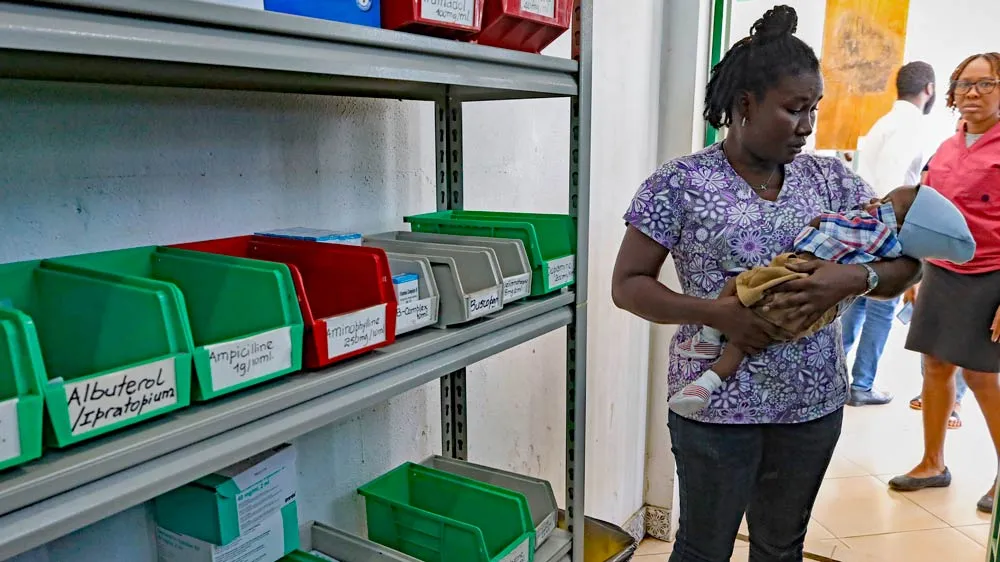June 21, 2015
Immigration Equality Fights For Undocumented LGBT People
Kilian Melloy READ TIME: 4 MIN.
For Marco Quiroga, the issue of LGBT immigration is a personal experience. Originally from Lima, Peru, his mother took him and his younger brother at the age of 3 to Orlando to escape an abusive relationship.
"From the age of 3, I've grown up undocumented," he said. "At the same time, I had to struggle with the fact that I was gay and I had to hide myself from the only support system I had in this world."
When he first came out in high school, he ran away from home and was homeless for a period of time. Today, he's a college graduate and the national field officer at Immigration Equality, an opportunity "to give back to the movement that gave me safety and security."
The agency got its started in 1994 as a humble cause by a group of New York activists armed with just an answering machine and other basic equipment. Now, it's considered the national leader on LGBT immigration working on more than 500 cases and has expanded to Washington, D.C.
Quiroga is still undocumented, but because of President Obama's 2012 Deferred Action for Childhood Arrivals (DACA), he has been given a temporary reprieve. His younger brother, who is also gay, was deported back to Peru and Quiroga fears for his treatment there.
With more than 80 countries considering homosexuality a crime, as well as any other form of sexual and gender expression, many seek to flee to the U.S. to live a life of freedom and safety. However, they can encounter issues like having their family recognized as a legitimate family unit, wind up in a detention center, or have trouble seeking asylum. Immigration Equality steps in with lawyers who will represent them for free and staffers who help them with the asylum process.
Because of its strict anti-gay laws as well as its proximity to the U.S., most of the clients Immigration Equality works with are from Jamaica. In fact, in a poll in late 2014 of more than 1,000 Jamaicans, 91 percent said they believed the island's buggery law, which makes sodomy illegal, should stay on the books. Prior to President Barack Obama's visit to the Caribbean island in April, a number of advocacy groups wrote a letter asking him to address the issue of LGBT hate laws there.
One of the major issues that LGBT immigrants coming to the U.S. encounter is not being aware of America's asylum status. Immigrants have one year to file for it, and Quiroga said about half the time people call them asking for help and their staff of lawyers can't help because the deadline has passed.
"Their first instinct after hiding who they are and not trusting their government is not to run to the government," he said. "The number one reason why LGBT immigrants don't apply for asylum is because they're not aware that's an opportunity available to them."
Immigration Equality would like there to be no deadline to file for asylum and the group considers it to be one of their top priorities in advocacy. According to Immigration Equality, there are more than 267,000 undocumented LGBT people in the country and not all of them qualify for asylum.
A second issue is overhauling the immigration detention system. For those who meet filing deadlines but are still undocumented, they are often sent to centers to be held until their paperwork is finalized.
"[It's] inhumane, constant harassment," Quiroga said. "[They're] being placed in an environment that you fled from to begin with and face that same type of abuse and persecution on American soil."
At these civil detention centers, they're dressed like prisoners with orange jumpsuits and housed in units like a prison. According to a 2013 report by the Center for American Progress, there are more than 250 detention centers in the country holding 34,000 immigrants -- the average stay for asylum seekers is 102 days, three times longer than average detainees.
"Complaints have documented LGBT detainees being called names such as 'faggot' by guards and being told to 'walk like a man, not a gay man' and 'act male,' " according to the report.
For transgender women, the centers are especially dangerous because they are often housed with men, Quiroga said. Should they be assaulted, they're placed in solitary confinement, supposedly for their own protection. Some are held for months at a time.
"If someone's life is literally at risk, if they're going to be deported back to a country where the government says we're going to imprison these people or kill these people for who they are, there shouldn't be a deadline on whether they're going to be deported or not," Quiroga said.
While President Obama might be considered the most LGBT friendly president -- even if he didn't start that way, Quiroga points out that more than 2 million people have been deported under his administration.
"There's an opportunity for the president to recognize that the nexus between LGBT rights and immigrant rights, especially when it comes to LGBT immigrants who are particularly vulnerable to this system. He can do more," he said.
Kilian Melloy serves as EDGE Media Network's Associate Arts Editor and Staff Contributor. His professional memberships include the National Lesbian & Gay Journalists Association, the Boston Online Film Critics Association, The Gay and Lesbian Entertainment Critics Association, and the Boston Theater Critics Association's Elliot Norton Awards Committee.




